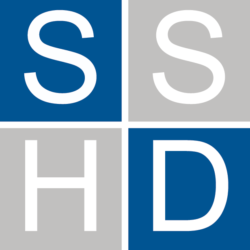Mentorship Moment: Advice from SSHD President Kristine Ajrouch
This blog is designed to enhance the work done by the Society for the Study of Human Development (SSHD) to support students and junior scholars through connections with established researchers in the field of Developmental Science. The focus for the first several posts in this series is how developmental science can be used to make a difference in the world.
 This month we feature Dr. Kristine Ajrouch, current president of SSHD and professor in the Department of Sociology, Anthropology and Criminology at Eastern Michigan University in Ypsilanti, Michigan. Dr. Ajrouch is also a Research Fellow with the Institute of Social Policy and Understanding. In this interview, Dr. Ajrouch discusses her work with the metro-Detroit Arab American community and provides systematic advice for leveraging the combination of research expertise and stakeholder relationships to improve lives and address community challenges.
This month we feature Dr. Kristine Ajrouch, current president of SSHD and professor in the Department of Sociology, Anthropology and Criminology at Eastern Michigan University in Ypsilanti, Michigan. Dr. Ajrouch is also a Research Fellow with the Institute of Social Policy and Understanding. In this interview, Dr. Ajrouch discusses her work with the metro-Detroit Arab American community and provides systematic advice for leveraging the combination of research expertise and stakeholder relationships to improve lives and address community challenges.
How is your work applied or translational?
I have two strands of research that overlap in important ways emphasizing on the one hand studies related to aging and life course, and on the other studies pertaining to Arab Americans and the Middle East. These interests have included systematic study of social relations, immigration, identity and forgiveness. The impetus for my scholarly foci has been a sincere commitment to better understanding human lives so that such knowledge may be used to address emerging as well as longstanding challenges that individuals, communities and society face.
How do you work with communities?
One community I work closely with is Arab Americans living in the metro-Detroit area of Michigan. U.S. Census data confirms that metro-Detroit is home to the largest, most visible concentration of Arab Americans in the United States. Working on issues of identity, aging, and forgiveness, I have contributed to a growing body of knowledge about the metro-Detroit Arab American community in particular. The results of my studies have been shared with community stakeholders, and laid the foundation for a trusting relationship. My research has involved linking with schools, families, mosques, churches, student organizations, and social service organizations, each of which saw value in each research project. Research findings have been reported in mass media outlets. Translating research findings into helpful programs and policies requires patience and diligence, an effort I continue to make.
What best practices would you recommend to colleagues?
Applied research should be accompanied by a genuine passion to support the individuals, groups, and communities with whom one works. Collaboration with communities requires a sincere commitment to regular communication that involves face-to-face as well as telephone and electronic contact. It is important to ensure transparency and convey honest care and interest in community well-being. Hence, openness to hearing and listening to the needs, hopes, and desires of community stakeholders is highly important.
Communities are sometimes skeptical about the need for research to address an identified challenge. Emphasizing a strengths-based approach is helpful. In other words, conveying that a researcher sees positives and value in the individuals, groups, and communities studied often alleviates mistrust and contributes to the unveiling of the identified challenge for the community.
In your experience, how does doing this type of work affect tenure and promotion?
Pre-tenure scholars would be well-advised to commit to establishing a record of research that situates him/her as one with expertise in the issue of interest. It is important to recognize that applied and translational work is more likely to be possible and influential once an established record of scholarly activity in an area is accomplished. Moreover, institutional requirements need to be carefully understood. Universities vary in the ways they evaluate scholarly output, and so adhering to tenure and promotion requirements of a specific institution should be the first commitment. With tenure and promotion, one becomes better poised to affect change in that 1) the scholar has achieved a recognized record of research in a particular area; and 2) job security is achieved, providing support for wider and less conventional application of one’s expertise.
What advice do you have for researchers hoping to make a difference in the world?
Find your passion and dedicate your expertise to understanding the pertinent issues in a scholarly manner. This should be followed by a commitment to establishing a notable record of research while forming trusted relationships with community stakeholders. This will allow for the development of recognized expertise. Together, these may be used to leverage engagement with and change in communities, ultimately leading to making a difference in the world.
If you are a researcher doing applied or translational work, we want to hear from you! Contact the series editor, Dr. Jennifer Agans, at jpa75@cornell.edu to be featured in this blog. Junior scholars are also welcome to submit questions you would like to see answered in future editions of the blog.

